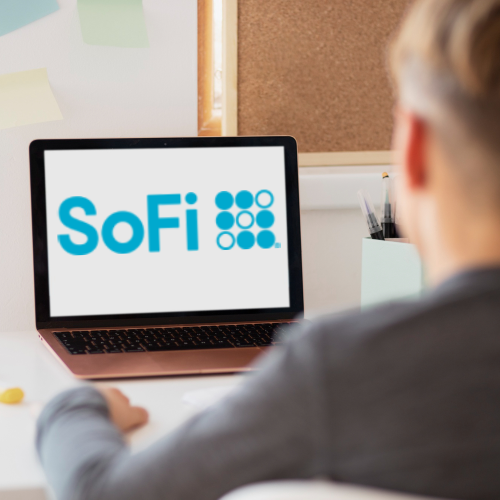Now that you’ve explored what a SoFi Personal Loan has to offer—from flexible borrowing options to added membership benefits—it’s time to see how to move forward. Here’s a step-by-step guide to help you understand the process and determine if this loan is the right fit for your needs.
Fees and Loan Amounts
SoFi stands out for its competitive rates and zero required fees. That means no origination fees, no late fees, and no prepayment penalties—making it a cost-effective option for borrowers. APR rates start around 8.99%, and eligible borrowers may qualify for discounts of up to 0.50%—0.25% for enrolling in autopay and another 0.25% for setting up direct deposit.
Loan amounts typically range from $5,000 to $100,000, with repayment terms between 2 to 7 years. Whether you need funds for an emergency expense, home improvement, or debt consolidation, the flexibility makes this loan suitable for both short-term needs and major financial goals. Just keep in mind that the exact loan amount and rate you qualify for may vary based on your credit and financial profile.
The application process is quick and entirely online, with no obligation or upfront costs for the initial pre-qualification.
Who Can Apply for a SoFi Personal Loan?
To apply, you must be at least 18 years old and a permanent resident of the United States. SoFi is best suited for borrowers with good to excellent credit, usually with a FICO score of 680 or higher. That said, your chances improve significantly if you have a steady income and a strong employment history.
When reviewing your application, SoFi evaluates not only your credit score but also your debt-to-income ratio. For larger loans (typically over $50,000), applicants with credit scores above 750 and a debt load under 35% of their income tend to be more likely to qualify.
How to Apply for a SoFi Personal Loan
To start your application, head to the SoFi website or mobile app and begin with the pre-qualification process. You’ll answer a few questions about your income, employment, and financial situation. The best part? This step won’t affect your credit score.
If you receive a pre-qualified offer, you can customize your loan terms, including the amount and repayment period, to fit your budget. Your final rate will depend on multiple factors including your credit profile and whether you sign up for the available autopay and direct deposit discounts.
To complete the application, you’ll need to upload standard documentation—typically a government-issued ID, proof of income, proof of address, and your Social Security number. Once approved, loan funds are deposited in a lump sum directly into your bank account.
Is a SoFi Personal Loan Worth It?
SoFi Personal Loans offer a strong combination of low rates, flexible terms, and a digital-first experience. On top of that, SoFi members get access to exclusive perks like career coaching, financial planning, and referral bonuses, making it more than just a loan.
However, approval can be competitive. Borrowers with lower credit scores or inconsistent income may find it harder to qualify. That’s why it’s important to assess whether your financial profile matches the requirements.
If you meet the criteria and want a fast, fee-free loan experience, SoFi is a compelling option to consider.
DISCLAIMER: The content on this website/blog is for informational purposes only and does not constitute financial, legal, or lending advice. For guidance tailored to your specific situation, please consult a licensed financial advisor or loan professional.
All information in this and other BOISLA articles is subject to change over time. Please check for updates directly with the institutions and companies mentioned. Approval is subject to the institution’s review.
REFERENCES:
Read more about loans in https://boisla.com/category/loans/





